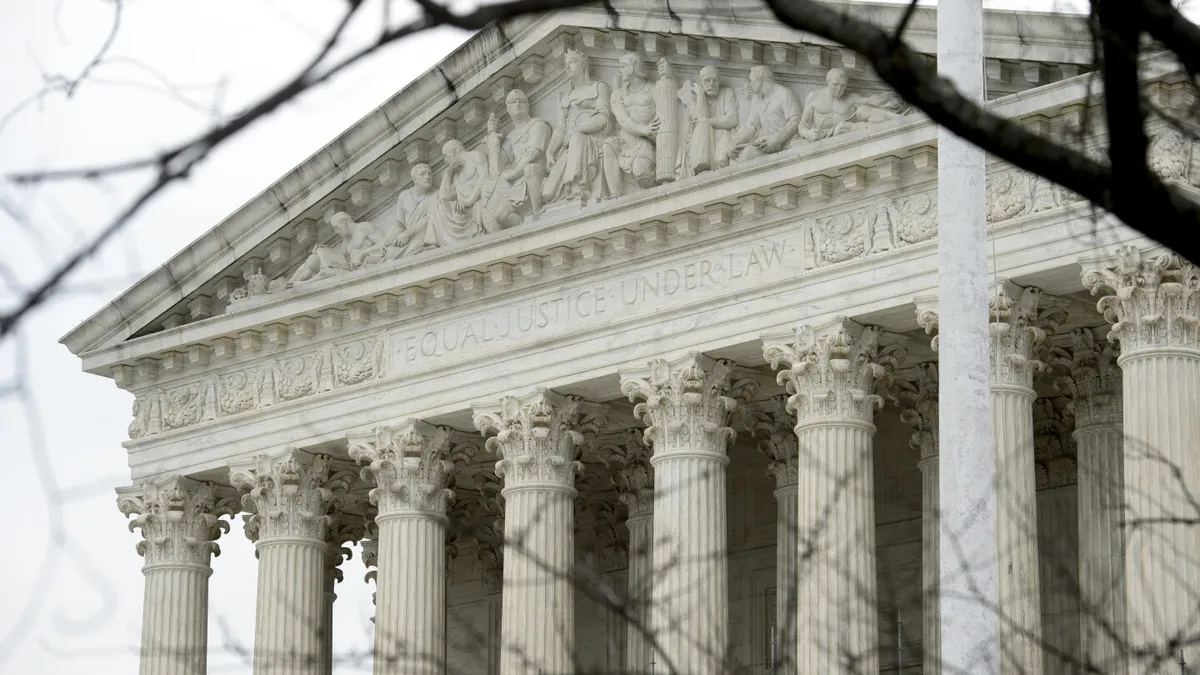
On Friday, the Supreme Court upheld a significant Texas law designed to prevent children from accessing online pornography. This ruling reflects a growing trend, as nearly half of the states in the U.S. have enacted similar laws mandating that users of adult websites verify their ages before accessing pornographic material. With the rise of smartphones and other digital devices, young users can easily stumble upon hardcore obscene content, prompting legislative action.
The Supreme Court's decision came in a 6-3 ruling that split along ideological lines. This outcome represents a setback for the adult-entertainment industry, which was represented by the Free Speech Coalition—a trade group challenging the Texas law. Justice Clarence Thomas authored the majority opinion, asserting that the law does not significantly infringe upon adults’ rights to free speech. He emphasized that while adults may access materials deemed obscene to minors, they lack a First Amendment right to bypass age verification processes.
In contrast, Justice Elena Kagan penned a dissenting opinion, arguing that the court ought to have applied a stricter legal standard to assess whether the law infringes on free speech rights. This debate highlights the ongoing tensions between protecting children and preserving adult access to legal content.
The ruling has prompted responses from major players in the adult entertainment industry. Notably, Pornhub, one of the most trafficked websites globally, has ceased operations in several states, including Texas. The company cited significant technical challenges and privacy issues associated with complying with these age verification laws.
Texas Attorney General Ken Paxton, a Republican, praised the Supreme Court's ruling, arguing that companies should not expose children to pornography and must implement reasonable age verification measures to protect minors. This decision could encourage more states to adopt similar legislation, according to the National Center on Sexual Exploitation.
Despite agreeing that children should not access pornographic material, the Free Speech Coalition contends that the law imposes an unreasonable burden on adults’ free speech rights. They argue that the requirement for individuals to submit personal information raises significant privacy concerns, making them vulnerable to hacking and surveillance.
The age verification requirements apply specifically to websites that host a certain volume of sexual content, excluding search engines and social media platforms that can also lead to adult material. Samir Jain, vice president of policy at the Center for Democracy & Technology, expressed that these requirements threaten not only privacy but also the fundamental principles of free expression online. He warned that the court’s decision could disrupt access to First Amendment-protected speech for both children and adults.
This ruling marks a notable deviation from past Supreme Court decisions. In 1996, the court invalidated parts of a law aimed at restricting children's exposure to explicit content online, and in 2004, it ruled against another federal law designed to prevent minors' access to porn. However, the court has indicated that less restrictive measures, such as content filtering, are permissible.
Proponents of the Texas law argue that advancements in technology over the past two decades now enable online platforms to verify users' ages more effectively, akin to the ID checks conducted in physical adult stores that have been upheld by the Supreme Court since the 1960s. Initially, district courts in Indiana and Tennessee, as well as Texas, blocked these laws, but appeals courts later reversed those decisions, allowing the regulations to take effect.
The implications of this ruling will likely resonate across various states and the broader digital landscape as discussions around age verification, child protection, and free speech continue to evolve.